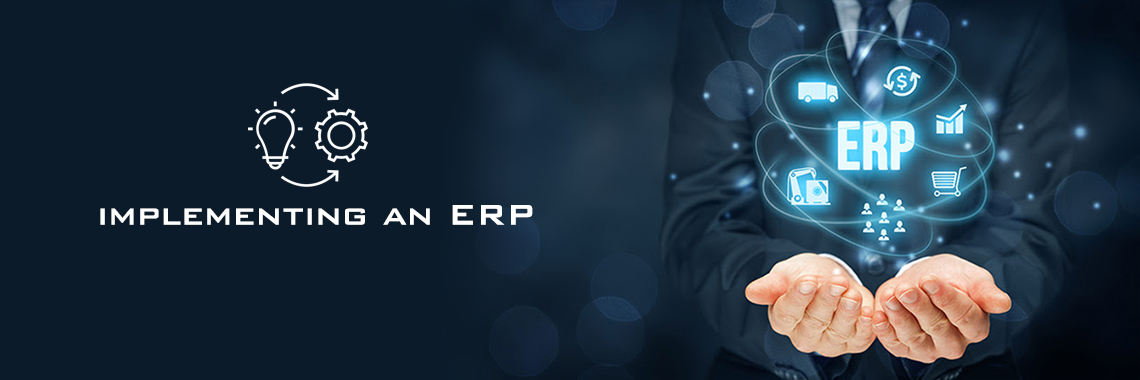ERP is an acronym for Enterprise Resource Planning. Enterprise Resource Planning (ERP) software applications help businesses to manage and connect information from all core areas of the organization with the aim of improving effective decision making.
Compelling reasons to implement an ERP system
- Integrate financials with all other functions
- Integrate customer order fulfillment information
- Standardize and speed up core business processes – manufacturing, financial services –whatever be the case
- Reduce inventory, non-performing assets – as the case may be.
Selection of ERP solution
Once you’ve begun the ERP software selection journey, you’ll need to know how to evaluate the solution possibilities. When conducting an ERP software evaluation below are the major factors that should be kept in mind.
- What do you need your ERP to do for you? One size does not fit all, however, the features and functions of ERP solutions are based on common business processes, so likely there is an ERP out there that will meet most of your requirements.
- What is offered for your type of business? Many ERPs are designed specifically for major industry sectors such as ERP for travel industry, ERP for construction industry, ERP for eCommerce and ERP for manufacturing, or geared towards a certain company size, minimizing the need for costly customizations.
- Should you replace or upgrade? Are you aware of ERP vendors’ current offerings and the latest technology trends? Even if you evaluated and purchased a system just a few years ago, the pace of change is quite rapid. There is no need to become an expert, but reading a few industry reports or blog posts can bring you up to speed with what is available.
- Are you considering user adoption and technology integration? Ensure your IT team is deeply involved during the evaluation process to ensure implementation and change management go as smoothly as possible.
- Do you have a specific requirement in mind for a platform, or are you open to a remotely-hosted system, a cloud-based one?
ERP Lifecycle
- Adaption decision phase
- To satisfy business needs company starts to question the need of ERP
- Acquisition Phase
- Buying of ERP system
- Implementation Phase
- Customizing, installation the system to business
- Maintenance phase
- Start using the system on a daily basis
- Evaluation Phase
- Evaluate, integrate, extension with other systems like CRM, BI
Challenges in ERP implementation
- Inadequate definition of requirements
- Resistance to change
- Composition of Project team members
- Inadequate training
- Lack of Top Management commitment
- Unrealistic expectations
- Miscalculation of time and efforts
- Proper ERP package selection
- Proper communication and Project management
From the perspective of project management, the iron triangle can illustrate how important it is to balance the three corners of the triangle – scope, schedule, and cost.

However, in most of the ERP implementations both schedule and cost tends to be underestimated, while scope generally gets increased, which were never perceived earlier, variations in any of these parameters can lead rolling wave planning where the project manager has to revisit the 5 process groups of Project Management which are initiation, Planning, Execution, Monitor and Control and Project Closure.
There are a lot of steps involved while going through the ERP implementation or an upgrade. The first and foremost step is selecting the ERP solution which best suits your organization. This can be a challenging task as there are a lot of ERP solutions in the market, also there are solutions which are customized for a particular industry. Thus, going for a brand like Microsoft can be the best possible solution.
The Microsoft Dynamics implementation partners can help you customize the solution according to your business requirements. The Dynamics ERP pricing depends upon the customizations and the modules that you purchase. The Dynamics ERP pricing may also vary according to your deployment preference i.e. On Premise or On Cloud. Choosing the right ERP partner for the implementation of ERP system is as important as selecting the right ERP solution in the first place.



Comments (0)